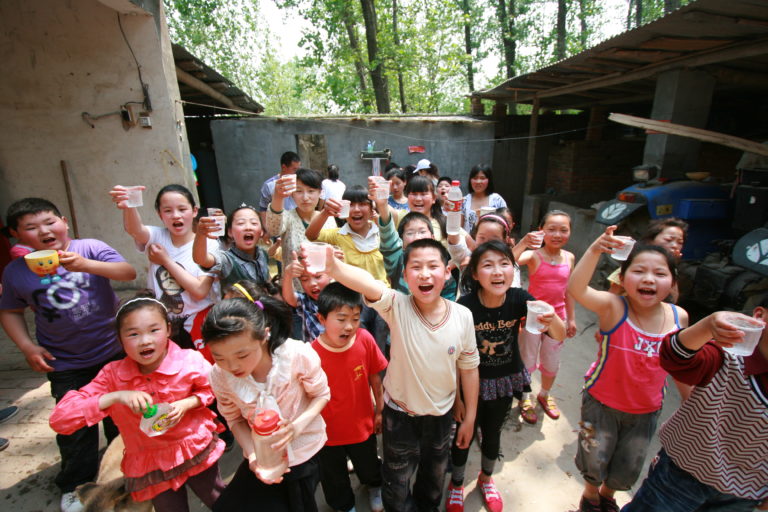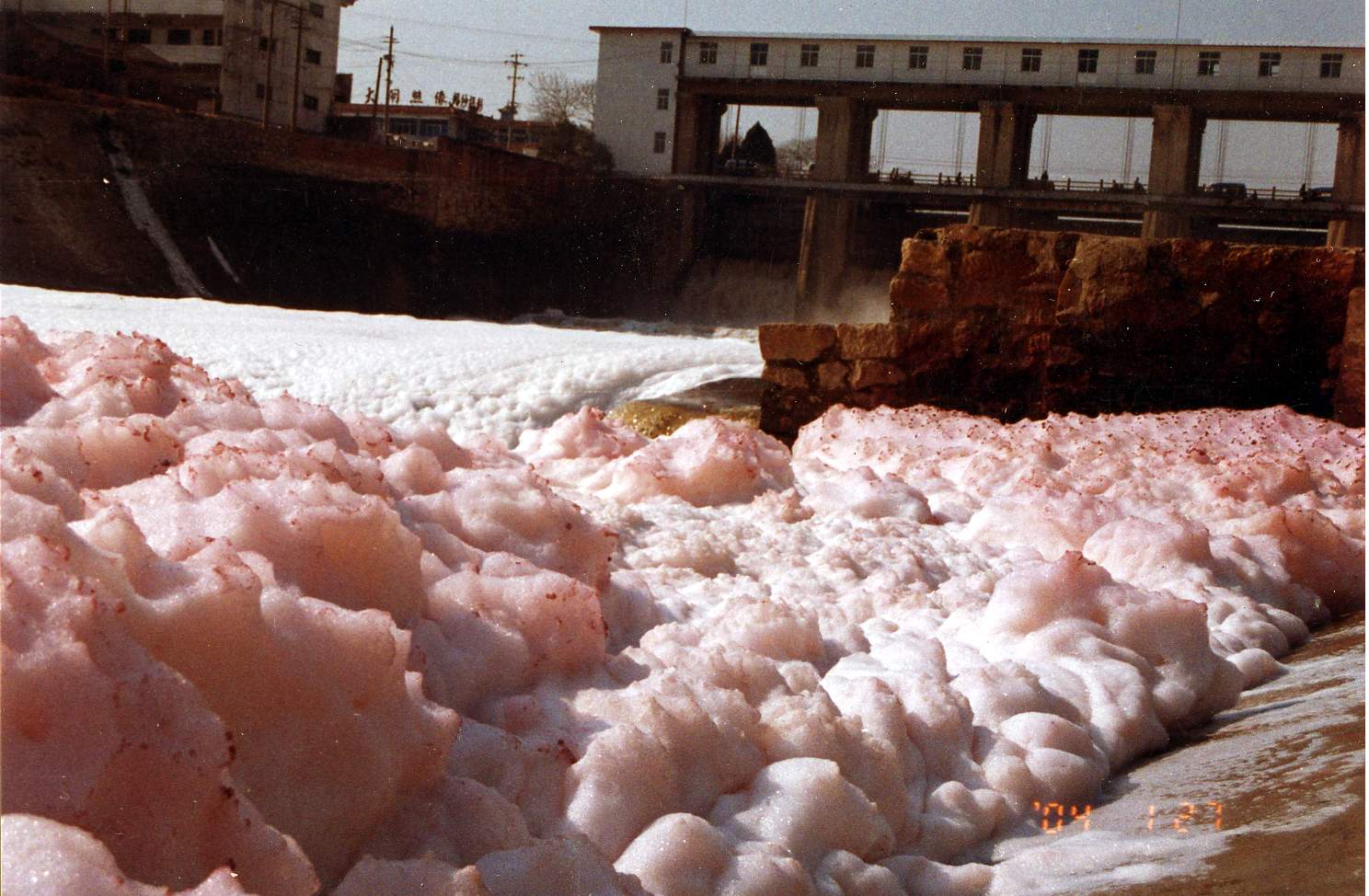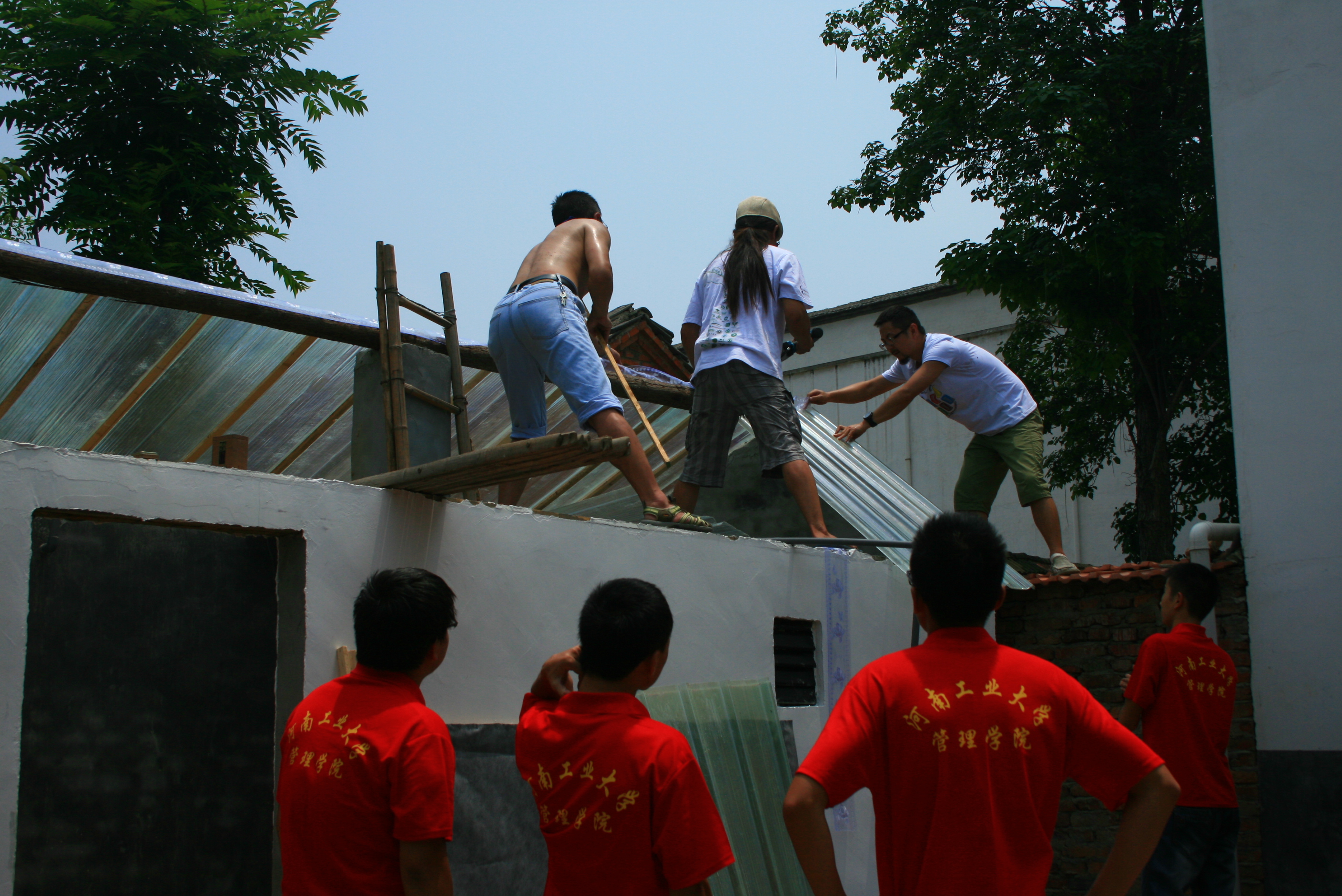
Rapid industrialization and scant pollution controls have left China with more than 400 villages where the cancer rate is extraordinarily high. The country even has a name for them: (癌症村), Áizhèng cūn, “Cancer Village.”
One cause: Water contamination.
Serious water pollution afflicts all seven large river basins in China, but the earliest and most serious river pollution began in the 1980s on the Huai River, China’s third longest. Flowing through Henan, Anhui, Shandong, and Jiangsu provinces, the polluted river has contaminated drinking water for 180 million people.
As a result, traveling the Huai’s length is a journey from one Cancer Village to another.

To solve this problem, the Huai River Ecological Environmental Science Research Center, home of Upper Huai River Waterkeeper, developed a biological water purification system, which takes rainwater, then filters it three times: Once through a crude filter, once through a biofilm, and once using a space membrane. The end result is water that, when tested, meets China’s drinking water standards.
The Guardians rolled out the first version in 2004, refining it over five iterations, and eventually winning a Chinese patent for the system in 2008.
Key for the impoverished villages, the water purification works without deep wells, saving the country $8 million it would have spent on drilling. The project costs $30,000 for every 15 tons of water purified. By comparison, buying just one day’s clean water for a village would cost far more.
One key to the project is a team of college students who work on building the systems. The Green Shield Environmental Protection Association at Beijing University of Science and Technology, led by Professor Cui Rui, created a youth team led by brothers Minhao Huo and Minjie Huo. Since 2008, the team has built 50 water purification systems in 47 Cancer Villages in Henan and Anhui provinces.

The result: More than 80,000 villagers get clean water — and the cancer rate in those villages has dropped by 90 percent over ten years, falling from 330 cases per 100,000 people to 30 per 100,000.
In the Cancer Villages of Wawa and Huangzuka, where the biological water purification system was built in 2008, there have been no new cancer patients for eight straight years.
Other diseases, infertility, and birth defects have also declined. Better health means the villagers have saved an estimated $32.2 million in medical expenses over ten years. Improved health has also improved incomes, which have increased by $154 million, adjusted for inflation, over ten years.

In addition to providing clean drinking water, the project is also changing the social life and governance in villages. Like the old well, the water collection point becomes the place to exchange ideas, opinions, and gossip.
Unlike the old well system, part of the project is a citizens’ engagement effort. In each village with a purification system, a villagers’ management group oversees the water purification system, and monitors water quality of the river, and surrounding ditches, ponds and sewage outlets to ensure the sustainability of the village’s ecological environment.
In at least one case, the management group also mobilized to fight a polluter. In one village, Sun East, the village’s management group found a factory discharging solid and hazardous waste into a ditch. The villagers documented what was happening and complained to a regulator, which worked to end the discharges.
The project has won the World Bank Award for Sustainable Development, the Global Energy Prize and the MCG prize, also known as the Nobel Prize of Asia. The East Gomti River Waterkeeper in India invited Defenders of the Huai River to build purification units and teach the purification techniques.
“This biological water purification device has been successfully developed,” said Minjie Huo, the Upper Huai River Waterkeeper. “The purpose is to help people who are sick from drinking polluted water. Life is priceless!”
“这个生物净水装置研发成功了,其目的是为了救助更多因为喝污染水而感染疾病的人,因为,任何人的生命都是无价的!
– Waterkeeper Alliance Advocacy Writer Ellen Simon contributed to this report